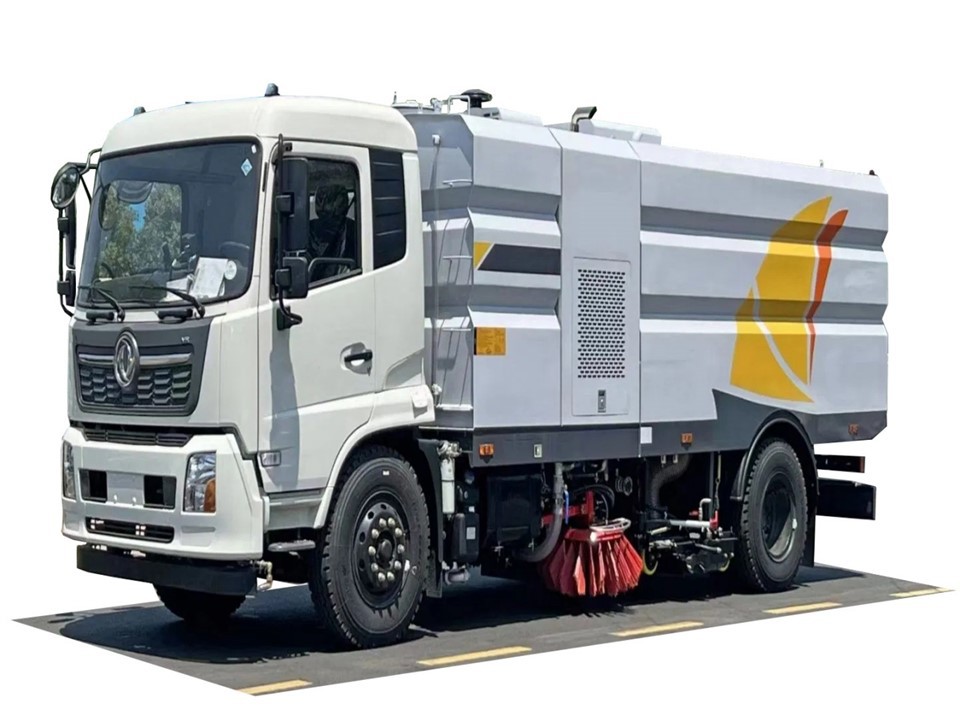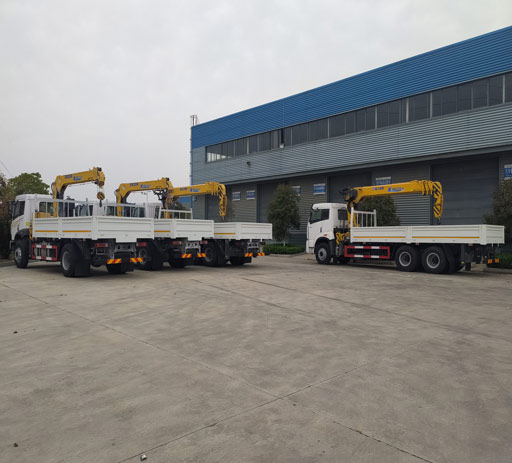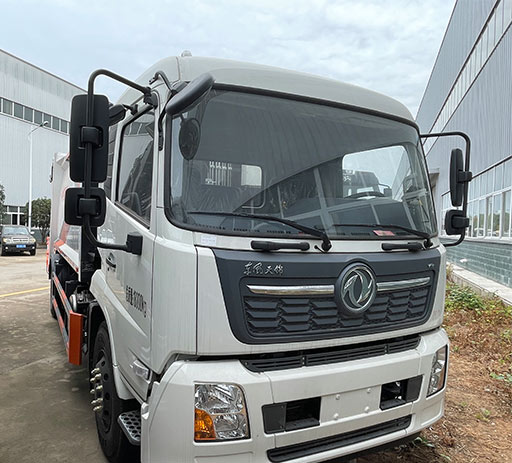The Ultimate Guide to Generator Trucks: Power on Wheels

In today’s fast-paced world, electricity is essential for both residential and commercial needs. Generator trucks are transforming how industries address power requirements, especially in remote or underserved areas. This article explores everything you need to know about generator trucks, covering their components, benefits, applications, and more.
Table of Contents
- What is a Generator Truck?
- Components of a Generator Truck
- Types of Generator Trucks
- Benefits of Using Generator Trucks
- Applications of Generator Trucks
- Capacity and Performance Considerations
- Maintenance Tips for Generator Trucks
- Cost Factors of Generator Trucks
- Future Trends in Generator Truck Technology
- FAQs
What is a Generator Truck?
A generator truck is a mobile power source, primarily used to deliver electricity wherever needed. Built on a truck chassis, these units combine the mobility of vehicles with the power generation capabilities of traditional stationary generators. This design makes them ideal for a variety of applications, including emergency power supply, construction sites, and special events.
Key Features
- Portability: Easy to transport to remote locations.
- Self-Sufficiency: Equipped with fuel tanks for extended operation.
- Diverse Power Options: Can provide various voltages and frequencies.
Components of a Generator Truck
Each generator truck is built with essential components that contribute to its functionality and efficiency. Understanding these components can help users make informed decisions when purchasing a generator truck.
1. Power Generation Unit
This is the heart of the generator truck, often comprising a diesel or natural gas engine paired with an alternator to convert mechanical energy into electrical energy.
2. Chassis
The chassis provides structural support and mobility. Trucks can vary in size, based on the generator’s capacity and terrain requirements.
3. Fuel Tank
A robust fuel tank allows for extended operation without the need for frequent refueling, essential in remote locations.
4. Control Panel
The control panel provides users with essential information like voltage levels, meter readings, and operational controls.
5. Exhaust System
The exhaust system directs harmful gases away from the user and ensures compliance with environmental standards.
6. Safety Features
Features such as automatic shutdown systems and circuit breakers help prevent dangerous situations during operation.
Types of Generator Trucks
Generator trucks come in various sizes and capacities to cater to different needs. Here’s a look at the common types:
1. Light Duty Generator Trucks
These typically have lower power outputs and are suitable for small-scale projects or events.
2. Medium Duty Generator Trucks
Capable of powering larger equipment or serving multiple smaller applications, these trucks offer a balance between mobility and power.
3. Heavy Duty Generator Trucks
Designed for industrial applications, these trucks provide significant power output and can support extensive operations.
4. Custom Generator Trucks
Some manufacturers offer custom solutions tailored to specific industry needs, featuring specialized equipment and power outputs.
Benefits of Using Generator Trucks
Generator trucks bridge the gap when traditional power sources are unavailable. Here are some of the considerable benefits:
1. Mobility
One of the primary advantages is their ability to move to where the power is needed most.
2. Cost-Effectiveness
Investing in a generator truck can be more cost-effective than renting stationary generators for every event or project.
3. Versatility
Generator trucks can cater to various industries, from construction to emergency services, proving their multifaceted capabilities.
4. Reliability
These trucks are built for performance, ensuring electricity is available as required, even in adverse conditions.
Applications of Generator Trucks
Generator trucks have a wide range of applications, making them highly valuable across different sectors. Here are some of the most common uses:
1. Construction Sites
Generator trucks are indispensable at construction sites, providing the necessary power for tools and equipment.
2. Events and Festivals
From outdoor concerts to festivals, generator trucks supply electricity for lighting, sound systems, and more.
3. Emergency Services
During power outages or natural disasters, generator trucks offer critical support to emergency response teams.
4. Remote Locations
Any area lacking access to the grid can benefit greatly from the mobility and power of generator trucks.
5. Film and Television
Film sets often rely on generator trucks to provide power for lighting, cameras, and ancillary equipment.

Capacity and Performance Considerations
When selecting a generator truck, various factors influence its capacity and performance:
1. Power Requirements
Determine the power needs for your specific application to select the appropriate truck size.
2. Fuel Type
Consider whether a diesel or natural gas generator aligns better with your operational preferences.
3. Runtime
Evaluate the expected operational hours to select a generator truck with an adequate fuel tank capacity.
4. Environmental Regulations
Ensure that the generator truck meets local emissions regulations.
Maintenance Tips for Generator Trucks
To ensure longevity and performance, regular maintenance is crucial. Here are some tips:
1. Regular Inspections
Conduct inspections of the engine, fuel system, and electrical components to detect any issues early.
2. Change Fluids Periodically
Regularly change the oil and fuel filters to enhance performance and prolong engine life.

3. Clean Air Filters
Keep air filters clean to maintain optimal airflow and engine efficiency.
4. Battery Maintenance
Check battery terminals and fluids periodically, replacing old or weak batteries as necessary.
5. Fuel Quality
Use high-quality fuel to avoid clogging and inefficient combustion.
Cost Factors of Generator Trucks
The overall cost of a generator truck can vary based on several factors:
1. Type and Size
Larger trucks with higher capacities typically cost more, due to increased manufacturing and operational requirements.
2. Fuel Type
Diesel generators may initial costs higher, but their fuel efficiency can reduce long-term expenses.
3. Added Features
Advanced technology features such as remote monitoring or automatic shutdown add to the initial cost.
4. Brand Reputation
Well-known manufacturers may charge a premium, but they often provide better warranties and support.
Future Trends in Generator Truck Technology
The generator truck market is continually evolving with technological advancements:
1. Sustainable Energy Solutions
The shift towards greener energy solutions is leading to increased interest in hybrid and electric generator trucks.
2. Smart Technology
Integration of IoT technology allows for remote monitoring, making operation easier and more efficient.
3. Enhanced Fuel Efficiency

New engines are being designed to maximize fuel efficiency, reducing operational costs.
4. Compact Designs
Future models are likely to become more compact while maintaining high power outputs, improving accessibility without sacrificing power.
FAQs
1. How often should a generator truck be serviced?
It is recommended to service the generator truck every 100 to 200 hours of operation or at least every six months.
2. Can a generator truck operate in extreme weather conditions?
Most generator trucks are designed to function in various weather conditions, but it is essential to follow manufacturer guidelines for extreme situations.
3. What size generator truck do I need?
The size of the generator truck needed depends on your power requirements. Calculate total wattage needed and consult with suppliers for recommendations.
4. Are generator trucks noisy?
Generator trucks do produce noise, but newer models often feature sound insulation technologies that minimize noise levels.
5. How do I operate a generator truck safely?
Follow all safety guidelines in the manufacturer’s manual, ensure proper ventilation, and use personal protective equipment (PPE) during operation.
6. Can I rent a generator truck?
Yes, many companies offer generator truck rentals, which is a great option for temporary projects or events.
